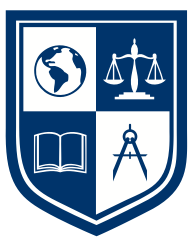I asked a simple question to my fellow coaches at the beginning of the year: “What is your favorite part of being an instructional coach?” Having taught for several years, I knew that the school year ebbed and flowed in difficulty and before I journeyed too far, I wanted to have something as my North Star. Without batting an eye, a colleague responded, “I love seeing my teachers grow over the course of the year.” Less than a month later, I was seeing growth myself.
Starting out in September as a first-time instructional coach, I was excited to sit down with our Kindergarten Learning Specialist, Ms. Francis, a first-year teacher, and explain that she was ready to move off her “Teacher Voice” goal and focus on “Checks for Understanding” as her first academic-based goal for instruction. We both celebrated this shift in her practice by analyzing how she had made growth in classroom management and how that growth had made it possible for her to move from one goal to the next. Reflecting on the incremental changes teachers make in their classrooms, when aligned with clear and measurable goals, leads to growth. In my short tenure as an instructional coach, I have found that a willingness to set clear goals and provide direct, actionable feedback in relation to those goals fosters a growth mindset for teachers. Below are some strategies anyone in a coaching role can implement to foster a growth mindset in instructional staff.
Observe to promote growth
If you are unfamiliar with Carol Dweck’s prolific research on growth mindset, the major headline of her theory is that praising effort rather than perceived traits yields a willingness to take on challenges. In other words, our delivery of, and response to, feedback has implications for the mindsets we hold. At the beginning of every school year at Classical, coaches collaborate with teachers to craft three goals that will push their instructional practice. A first-year teacher typically starts with three classroom management goals that center around environmental awareness, teacher presence, and efficient routines. Veteran teachers take on more academic goals that focus on scholar growth. These goals aim to increase the rigor of questioning that teachers use, how they vary the modes of participation from scholars, and how feedback is captured on paper or through whole class discussions.
My teachers’ priorities dictate the type of observations I provide. For example, when teachers are focused on laying a strong foundation through routines and classroom management, I will either write up my notes from the lesson for us to discuss, or, provide in-the-moment feedback of how they can tweak their lesson delivery. When teachers are focused on academic growth with their scholars, I will either model a lesson in a way that targets one of their goals, or, analyze scholar work to identify trends that can be addressed in class. By observing in diverse ways, I can partner with teachers to see their class from multiple angles: be it the 30,000-ft. view of classroom management or the 1-ft. view of writing main ideas.
However, the observation is only the beginning. In addition to providing actionable next-steps that teachers can use to implement the feedback, coaches must also model what it means to be an active learner. This can be done by asking probing questions like, “What was communicated most effectively in our conversation?” or “How does our debrief compare in clarity to meetings you have had with other coaches?” The answers to these questions push coaches to improve communication and maximize their impact.
Model a growth mindset through 360-degree feedback
At Classical, we empower teachers to actively influence the quality of the professional development they receive. One way in which we do this is by providing teachers an opportunity to provide immediate feedback to instructional coaches. For example, at the end of our monthly professional development sessions, each teacher rates the sessions they attended on a scale of 1-4 and then provides qualitative feedback on categories ranging from the actionability of the session to the presentation itself. Teacher feedback pushes coaches to be urgent and actionable in the preparation and delivery of professional development sessions, ultimately incorporating our belief that everyone has room to grow and that feedback is one of the processes through which we improve.
Celebrate the wins in a way that resonates
At the beginning of the school year I sent out a survey for teachers to complete to get the ball rolling on our coaching relationship. Besides wanting to know their hobbies, favorite snacks, and what music is playing in their headphones on their way into the school building, I also want to know how they like to communicate and receive feedback. I was shocked when a teacher said, “You can cut straight to the point. I always focus on the areas of improvement anyway.” If each teacher I coach does not feel my deep sense of appreciation and admiration, then I have fundamentally failed them. Our work is not easy. We are constantly seeking ways to capitalize on the brilliance and curiosity of our South Bronx scholars while also delivering an exceptional, classical education. In the same way that we want to celebrate our scholars when the light bulb goes off, I want to spend time celebrating the success of my teachers in a way they appreciate because they work too hard to not have a coach celebrating their growth and rooting for them along the way.
 This post was contributed by Mr. Samuel Gradess, an Instructional Coach at Classical Charter Schools. As a non-CMO charter network, we rely on the thoughts, opinions, and innovations of our staff to move our mission forward and provide an excellent academic option to families in the South Bronx. To hear more from our staff, check out the next post! Or, click here to learn more.
This post was contributed by Mr. Samuel Gradess, an Instructional Coach at Classical Charter Schools. As a non-CMO charter network, we rely on the thoughts, opinions, and innovations of our staff to move our mission forward and provide an excellent academic option to families in the South Bronx. To hear more from our staff, check out the next post! Or, click here to learn more.


